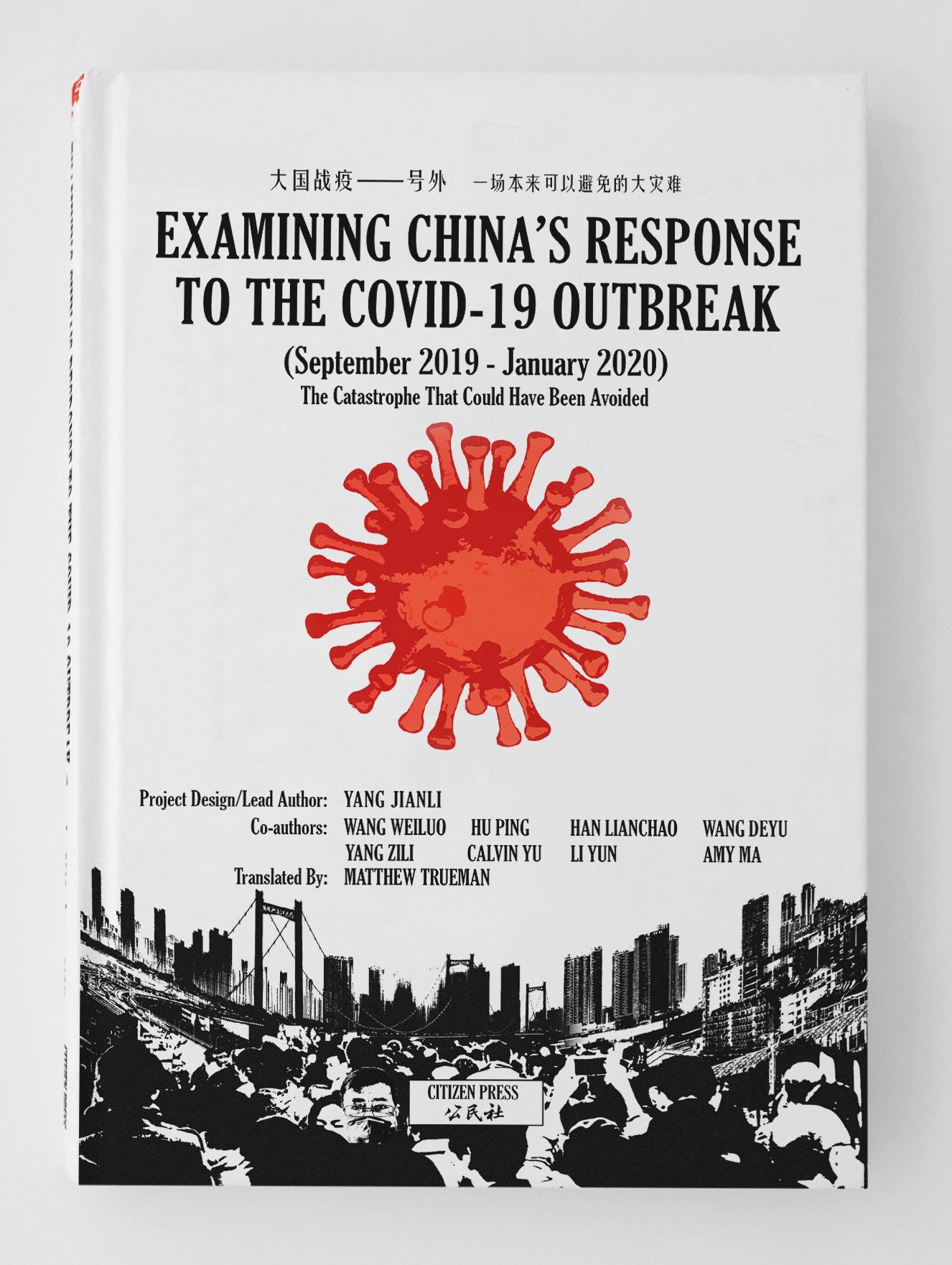
中国山東人,伯克利加州大學數學博士,哈佛大學政治經濟學博士。1989年從美國回国参加天安门民主運動。1990-2002年任「21世紀中國基金會」主席,期间推出《中华联邦宪法(草案)》,2002年4月秘密回國支援工運被捕,後以危害国家安全罪判刑五年,2007年釋放後流亡海外,同年末,在美國創立民主運動NPO「公民力量」。2010年代表刘晓波出席诺贝尔和平奖颁奖仪式。是多项国际人权奖的获得者。
Top Chinese leadership knew about COVID-19 and knowingly suppressed information
By Jianli Yang and Hu Ping

「CPIFC is releasing the English version of report documenting CCP's response in the early critical days of the COVID19. “Examining China’s Response to the Covid-19 Outbreak (September 2019—January 2020): The Catastrophe That Could Have Been Avoided”。」
An Aug. 19 New York Times story claims that a new U.S. intelligence report says top officials in Beijing were in the dark in a good part of January on the true dangers of the coronavirus. This conclusion is useful to let Xi Jinping off the hook and reduce pressure on the United States and other countries to hold his regime to account.
Detailed findings in our research report “Examining China’s Response to the Covid-19 Outbreak (September 2019—January 2020): The Catastrophe That Could Have been Avoided” show that the U.S. intelligence report in question (as reported by The New York Times) is false. Here we present our case from the angle of China’s politics of shifting responsibility.
After Wuhan was locked down on Jan. 23, people have been vocal in calling for accountability, giving rise to a time-honored phenomenon of “passing the buck (shifting responsibility).” Local officials in Wuhan bore the brunt.
On Jan. 27, Wuhan Mayor Zhou Xianwang offered to be interviewed by CCTV. During the interview, Mr. Zhou publicly admitted that Wuhan didn’t disclose the epidemic in a timely manner. But then Mr. Zhou suddenly changed the topic, saying: “With regard to information not getting out in a timely manner, everyone needs to understand that this is an infectious disease, and there are infectious disease control laws. Information must be released according to the law. As a regional government, after I obtain this information, I need to get authority (from Beijing) first before I can disclose it.”
This created a shockwave. For Mr. Zhou, as a local official, to be broadcast live on CCTV to the national public — and for him to openly “pass the buck” to Beijing — is unprecedented in the world of the Chinese officialdom. Needless to say, Mr. Zhou took a huge risk. The question, then, is: Why did he speak out?
He said what he said, which must be the truth, in order to protect himself, not wanting to become a scapegoat because Beijing could accuse him of “false reporting” and remove him from office to appease the public’s outrage. He knew Mr. Xi might settle scores with him in the future. But for Mr. Zhou, his political future might have been in jeopardy regardless of whether he told the truth or not. He chose to speak out as a tragic hero rather than be falsely accused of concealing or downplaying the outbreak.
What is more surprising than Mr. Zhou’s act of shifting responsibility to Beijing is that he has not been removed as mayor. Mr. Zhou was the first person to shift the blame, and he did so in the clearest and most direct manner possible. Don’t forget, he didn’t shift blame onto low-level officials, but onto the central government. If he shifted blame onto the wrong target, there is no way that he would have “survived” to this day. Thus, it would have been inconvenient for Mr. Xi to punish him. If Mr. Xi bided his time and sought revenge against Mr. Zhou later, it wouldn’t be because he concealed the outbreak, but because Mr. Xi wanted to exact revenge on him.
Many think under the CCP’s autocratic system, lower-ranking officials always report good news to their superiors and conceal bad news from them. This isn’t completely correct. In fact, with regard of epidemics, lower-ranking officials have little motive for underreporting the data.
During the SARS outbreak, China’s then-Minister of Health and Mayor of Beijing were removed from office for underreporting the data and weak epidemic prevention measures. Presumably having learned this lesson, why would later local officials still underreport outbreak-related data?
Regarding natural disasters like an epidemic, even if local officials wanted to conceal the true figures, they could usually only deceive their subordinates, not their superiors. This is because if an official tells the truth to the public, resulting in panic, social chaos and/or the cessation of production, then the official will be blamed by higher levels of government.
However, if the official uses internal channels to report the truth to his superiors, then the official doesn’t need to worry about being reprimanded or worse. In particular, Chinese laws and regulations passed after SARS stipulate that local governments must obtain authorization from above before notifying people about an epidemic. What other motive could local officials have for hiding the truth from their superiors?
We should not forget it was Xi Jinping himself that, on Jan. 28, 2020, while meeting with WHO Director-General Tedros Adhanom, remarked that he has “continuously been directing and planning” China’s response to the coronavirus epidemic. This statement illustrates two points:
First, Mr. Xi has always known about the outbreak in Wuhan.
Second, since Mr. Xi knew about the outbreak from the beginning and has been personally directing and planning China’s response, it’s only natural that he should bear full responsibility for squandering the opportunity to prevent the large-scale spread of the epidemic due to his approach of “maintaining stability at all costs”; for deliberately attacking freedom of speech; for covering up the truth; for prohibiting announcements about the epidemic; for refusing to declare an emergency response; for downplaying the epidemic; for knowingly publishing false information and false data; and for severely misleading the Chinese people as well as the governments and peoples of other countries.
• Jianli Yang is founder and president of Citizen Power Initiatives for China. Hu Ping is honorary editor of Beijing Spring.
喜欢我的文章吗?
别忘了给点支持与赞赏,让我知道创作的路上有你陪伴。
发布评论…